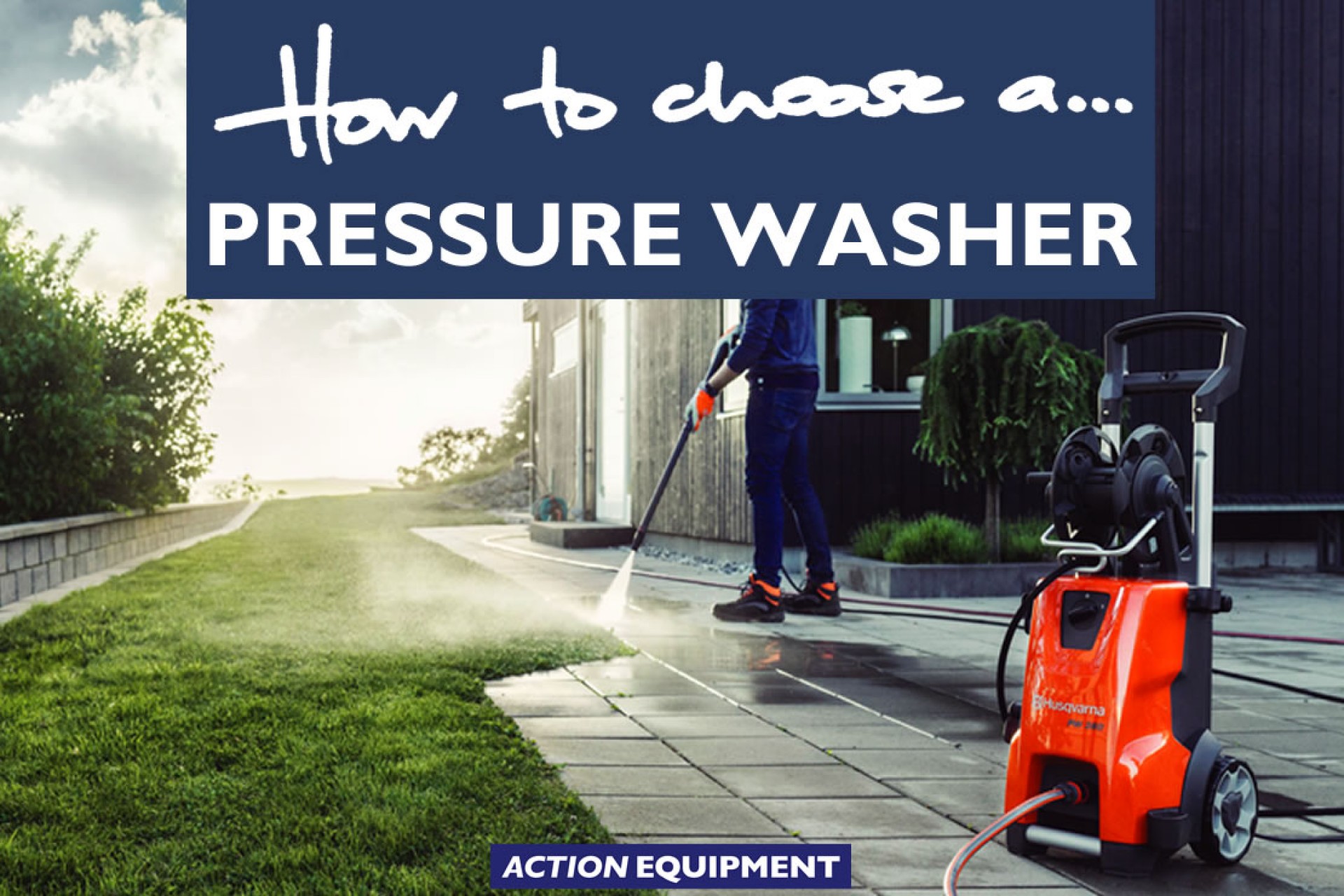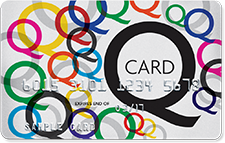How to choose a pressure washer

Almost every Kiwi property – large or small – has countless uses for a pressure washer. Once you’ve bought one, you’ll wonder how you ever managed without. But it’s important to choose one that best suits the uses you’ll put it to.
You’ll find a great selection of pressure washers at Action Equipment. Let us help you choose the one that’s right for your needs.
Power: More isn’t necessarily always better – choose the power that best suits your most common tasks
When shopping for the best pressure washer for your cleaning needs, keep in mind that the power determines what kind of jobs it can handle.
That power is measured by pressure output — published in machines’ specifications in pounds per square inch (PSI) — and water volume — in litres per minute (LPM). Pressure washers rated with a higher PSI and LPM clean better and faster, but almost always cost more than lower-rated units. And on some surfaces, higher pressure may even cause damage.
The water volumes in each machine’s specifications may sound high, but bear in mind that pressure washers use up to 80% less water to achieve the same cleaning result as a garden hose.
Light Duty
Perfect for smaller jobs around the home, these pressure washers typically rate up to 1900psi at around 4-7 litres per minute. These smaller, lighter machines are almost exclusively electric, and are ideal for cleaning outdoor furniture, barbecues, concrete paths, and vehicles.
Medium Duty
Medium-duty pressure washers generate between 1900 and 2800psi, at up to 15lpm. This sort of power is best for cleaning everything from building exteriors and fences to patios and decks. You’ll find models in this range available with either electric motors or petrol engines.
Heavy Duty and Commercial
Heavy-duty pressure washers start at 2800psi and 8lpm, while commercial grade pressure washers start at 3100psi and can put through as much as 15lpm. These durable petrol-powered machines make light work of many large-scale cleaning jobs, including cleaning decks and driveways, washing two-storey homes, removing graffiti, and stripping paint.
Electric or petrol?
Some homeowners prefer electric pressure washers because they’re simple to use, are lighter, and easier to carry. They can be stored in smaller spaces, there’s nothing to maintain, and they’re quieter than petrol-powered units. However, electric pressure washers can only go as far as an extension cord will reach, are designed for only occasional use, and are generally considered disposable rather than repairable.
People with more demanding needs will choose a petrol-powered pressure washer because they’re much more powerful, last longer, and can be repaired. If a component fails, such as the pump, it can be replaced fairly simply. While carrying its fuel with it, a petrol-powered model can be used where an electric one cannot – but they weight of the petrol may make it more awkward to carry over any distance.
Pumps
In addition to the machine’s output, you should also consider what its principal components are made from. At the entry-level end of the market, many makes and models use alloy pumps, which are more prone to corrosion over time and can be uneconomical to replace. Mid-range and high-end products will have brass pumps. In either case, your pressure washer will last longer if the pump is maintained to the manufacturer’s recommendation before being put into storage for extended periods.
Hoses
The hose that comes with most domestic pressure washers is reinforced rubber rated for high pressure, and generally about 7m long. While these will be perfectly adequate for most tasks, it’s possible to replace or complement those hoses with longer and/or stronger ones, as found as standard on the higher-end models.
Nozzles
Your pressure washer will come equipped with either an all-in-one variable spray wand or a set of interchangeable nozzles. Many electric models, which tend to max out at 2300psi, let you adjust water pressure with a twist of the lance, although some models may come with a set of nozzles as found on petrol-powered pressure washers. Those nozzles generally come in a standard set of five, regardless of the make and model of pressure washer, although there will be exceptions:
- 0° (red nozzle) is the most powerful, concentrated nozzle setting.
- 15° (yellow nozzle) is used for heavy-duty cleaning.
- 25° (green nozzle) is used for general cleaning.
- 40° (white nozzle) is used for vehicles, patio furniture, boats, and easily damaged surface.
- 65° (black nozzle) is a low-pressure nozzle used to apply soap and other cleaning agents.
Other accessories
Many pressure washer brands offer a range of attachments, accessories, and consumables that can be added over time as needs change. Detergents developed for use with pressure washers on specific cleaning tasks are cheap essentials that can be used with or without car cleaning kits or other brush accessories.
Surface cleaners are excellent for use on larger areas like driveways to ensure an even cleanliness. They make sure the water hits from a consistent height and angle, something that’s much more difficult to achieve with a handheld lance that the user swings back and forth.
Using a Pressure Washer
Pressure washer technique depends on what you’re cleaning. Whatever your cleaning project, these general tips will help keep you safe.
- Read the user’s manual that came with your pressure washer.
- Before starting, ensure you know how to quickly turn the pressure washer off and release pressure from the system.
- Ensure you have good footing on a stable surface. Never use a pressure washer while standing on a ladder – the water pressure can create recoil and cause you to lose your balance.
- Wear ear and eye protection. Dirt kicked up by the pressure washer may ricochet into your eye, and sustained exposure to the noise of even a relatively quiet pressure washer can damage your hearing.
- Never leave the spray lance unattended while the washer is turned on.
- Avoid damaging the object or surface you're cleaning by using the correct nozzle and spray setting at the appropriate distance.
- Never point the spray lance at people or animals.
- Keep the water flow – including rebound off objects and surfaces – away from electrical fixtures, power sources and power lines.
- After use, turn off the power (engine or electricity supply), and pull the hand trigger to release any remaining water in the pipe and machine before storing away.
Technique
Pressure washers come with plenty of different uses, making them perfect for keeping your car, driveway and outdoor spaces sparkling clean throughout the year.
Car cleaning
A sponge, bucket, and plenty of elbow grease will do the trick. But for a professional-level clean that blasts debris, mud, sand, and dust into oblivion, a pressure washer and vehicle cleaning kit attachments are all you need. Adding a detergent tank makes cleaning and waxing a cinch.
Drains and gutters
Blocked drains, gutters and pipes can cost a small fortune to have fixed. Instead of engaging a plumber or drainlayer, you may be able to solve the issue yourself is with a pressure washer and self-feeding pipe cleaning hose. These effortlessly blast through blockages and buildups, breaking them apart and flushing them away.
Furniture and fences
Over time, woodwork can start to look dull, lack-lustre and in need of some TLC. While stonework is pretty resilient to high-pressure cleaning, woodwork needs something a little gentler. Dial down the pressure to prevent splintering and cracking. A flat nozzle and working following the grain work best to minimise any damage. Once cleaned, allow to dry thoroughly before applying any wood stain, paint, or sealant to prevent moisture locking in.
Windows
Cleaning dirty windows doesn’t have to be a chore. A foam sprayer and an angled spray lance fitted to your pressure washer will remove surface debris, soften and remove dirt, dust and bird mess, leaving the glass sparkling without any scrubbing.
Paths, driveways, patios, and walls
Years of stubborn dirt, algae and muck can take a long time and plenty of effort to remove entirely. While spray attachments are ideal for doing this, a rotating surface cleaner is ideal for scrubbing large surfaces, be it a wall, patio, path, driveway, decking or terraces. The power regulator makes it simple for you to choose the best water pressure for your cleaning needs, while the rotating head is designed to scrub without spray-back.
Tight or sharp corners
Sometimes, there’s not enough space to be able to manoeuvre into the right position to get into the guttering, beneath the car chassis, between tight gaps and under low furniture. An angled spray lance makes tight spaces easy to clean, removing the need to bend, stretch and over-reach.

